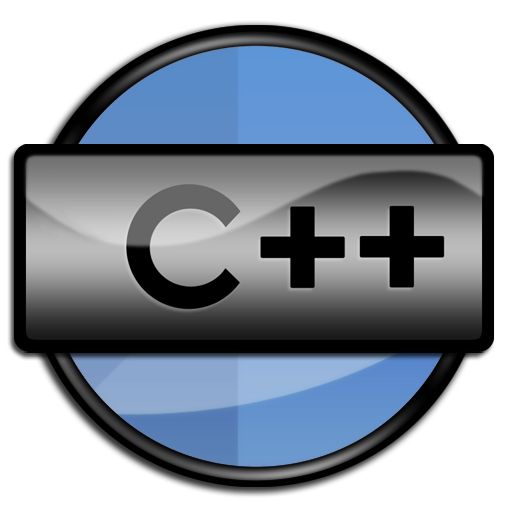
C++ is a powerful and versatile programming language that has been a cornerstone in software development for several decades. Initially developed by Bjarne Stroustrup in the early 1980s, C++ has evolved into a language of choice for system software, game development, embedded systems, and more recently, high-performance applications and machine learning.
Key Features of C++
- Object-Oriented: C++ supports object-oriented programming (OOP) paradigm, allowing developers to model real-world entities using classes and objects. This facilitates modular and scalable code, enhancing reusability and maintainability.
- Efficiency: Known for its performance, C++ compiles directly to machine code, making it suitable for applications where speed and resource efficiency are critical, such as gaming engines and system software.
- Rich Standard Library: C++ provides a comprehensive standard library that includes data structures (like vectors, stacks, and maps), algorithms (sorting, searching), and utilities (strings, streams). This reduces the need for external libraries in many cases.
- Compatibility: C++ is backward-compatible with C, allowing developers to leverage existing C libraries and codebases seamlessly. This interoperability is crucial in maintaining and extending legacy systems.
- Memory Management: C++ offers manual memory management through pointers, which gives developers fine-grained control over memory allocation and deallocation. However, this requires careful handling to avoid memory leaks and segmentation faults.
Getting Started with C++
To begin programming in C++, you need a compiler and an integrated development environment (IDE). Popular choices include:
- Compiler: GCC (GNU Compiler Collection), Clang, Microsoft Visual C++ Compiler
- IDE: Visual Studio, Code::Blocks, Eclipse, CLion
Once set up, a basic “Hello, World!” program in C++ looks like this:
cpp
int main() {
std::cout << “Hello, World!” << std::endl;
return 0;
}
Core Concepts in C++
Classes and Objects
Classes are user-defined types in C++ that encapsulate data (attributes) and functions (methods). Objects are instances of classes, allowing multiple objects to be created from a single class blueprint.
cpp
class Car {
private:
std::string brand;
int year;
public:
Car(std::string b, int y) : brand(b), year(y) {}
void displayInfo() {
std::cout << "Car: " << brand << ", Year: " << year << std::endl;
}
};Car myCar(“Toyota”, 2022);
myCar.displayInfo();
return 0;
}
Inheritance and Polymorphism
Inheritance allows one class (subclass) to inherit the properties and behaviors of another class (base class). Polymorphism enables methods to be overridden in derived classes, promoting flexibility and code reuse.
cpp
class Animal {
public:
virtual void makeSound() {
std::cout << "Some sound\n";
}
};public:
void makeSound() override {
std::cout << “Bark\n”;
}
};
Animal* animal = new Dog();
animal->makeSound(); // Outputs “Bark”
delete animal;
return 0;
}
Templates
Templates in C++ allow generic programming, where functions and classes can operate on different data types without repeating the code for each type. This promotes code efficiency and flexibility.
cpp
template <typename T>
T max(T a, T b) {
return (a > b) ? a : b;
}int result = max(5, 10);
std::cout << “Max: “ << result << std::endl; // Outputs “Max: 10”
return 0;
}
Advanced Topics in C++
Exception Handling
C++ supports exception handling to manage runtime errors gracefully and ensure program stability. Exceptions are thrown when an error occurs, and can be caught and handled using try-catch blocks.
cpp
try {
// Code that may throw an exception
throw std::runtime_error("Something went wrong");
} catch (const std::exception& e) {
std::cerr << "Exception caught: " << e.what() << std::endl;
}
Multithreading
With the rise of multicore processors, C++11 introduced a standard threading library (<thread>) to facilitate concurrent execution. This allows programs to perform multiple tasks simultaneously, improving performance and responsiveness.
cpp
std::cout << “Hello from thread!\n”;
}
std::thread t(threadFunction);
t.join(); // Wait for thread to finish
std::cout << “Main thread\n”;
return 0;
}
Standard Template Library (STL)
The STL provides essential data structures (like vectors, queues, and maps) and algorithms (sorting, searching) that simplify complex programming tasks. It enhances code clarity and efficiency by leveraging templated classes and functions.
cpp
std::vector<int> numbers = {5, 2, 8, 1, 6};
std::sort(numbers.begin(), numbers.end());
std::cout << num << ” “;
}
std::cout << std::endl; // Outputs “1 2 5 6 8”
return 0;
}
Applications of C++
C++ finds applications in various domains due to its performance, versatility, and efficiency:
- System Software: Operating systems, device drivers
- Game Development: Game engines, graphics libraries
- Embedded Systems: IoT devices, microcontrollers
- High-Performance Computing: Scientific simulations, financial systems
- Web Browsers: Rendering engines, JavaScript interpreters
- Machine Learning: TensorFlow, OpenCV
Conclusion
C++ remains a vital language in the software development landscape, prized for its speed, efficiency, and versatility. Whether you are developing games, system software, or exploring cutting-edge technologies like machine learning, C++ provides the tools and capabilities needed to build robust and scalable applications.
Understanding its core features, mastering advanced concepts, and leveraging its rich ecosystem of libraries and tools are key to becoming proficient in C++ programming. As you delve deeper into the language, you’ll discover its immense potential and applicability across diverse domains of software development.
In conclusion, C++ continues to evolve, adapt, and thrive, cementing its position as a foundational language for developers worldwide.







